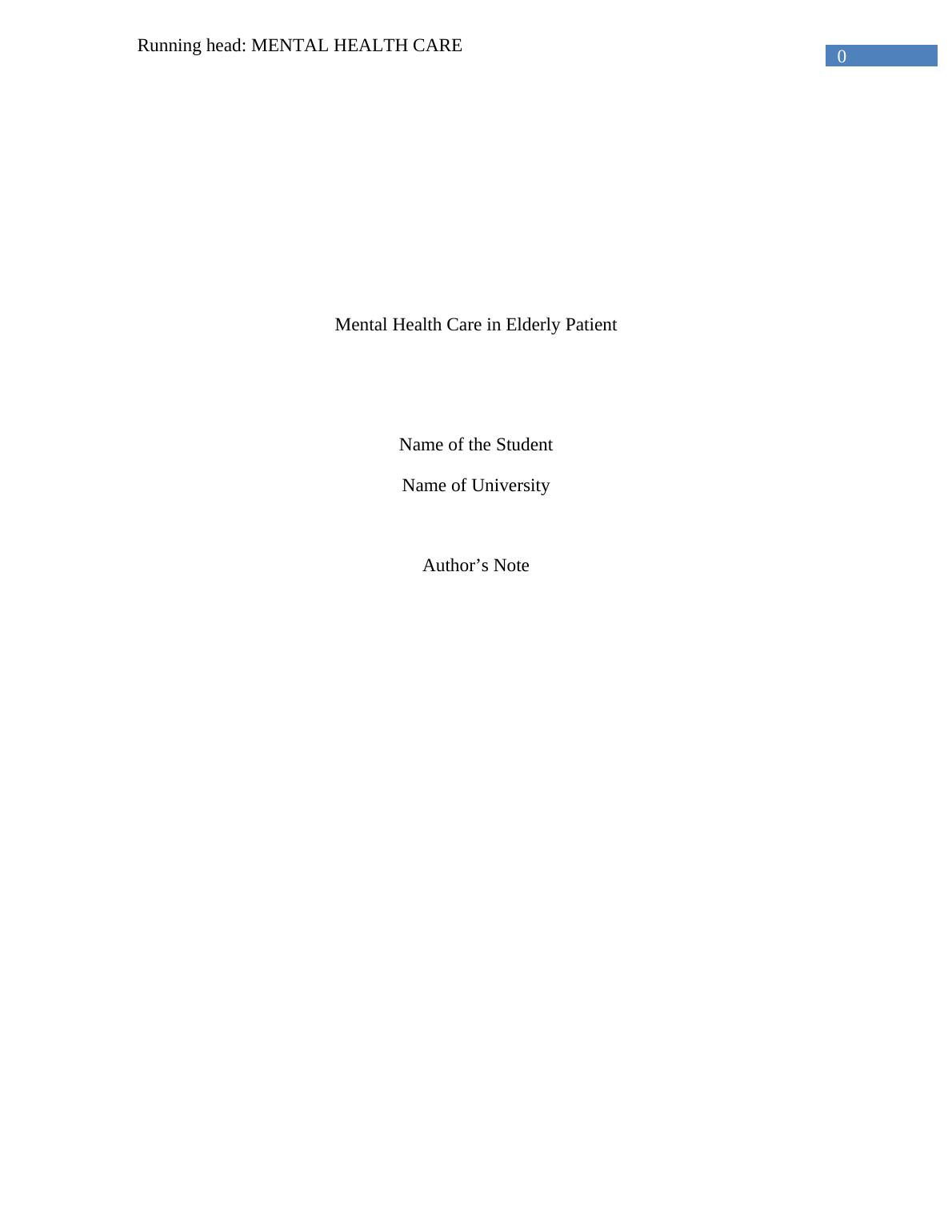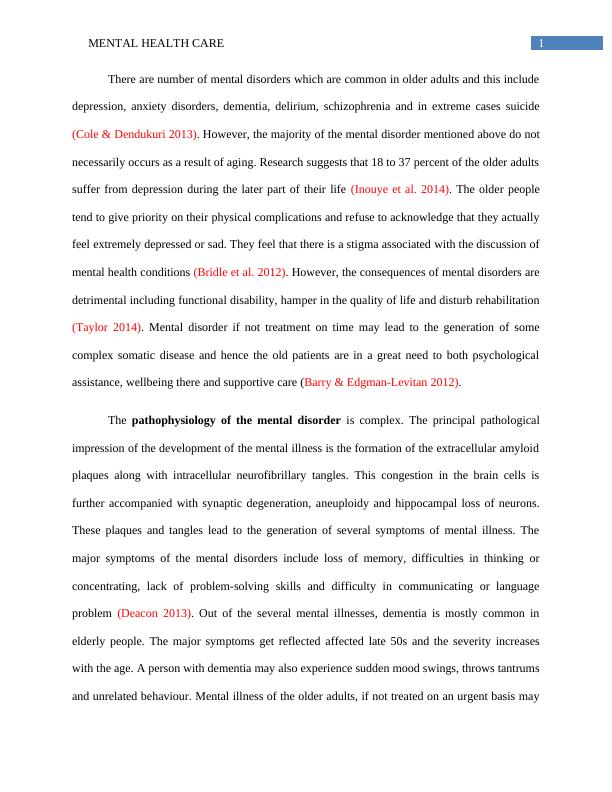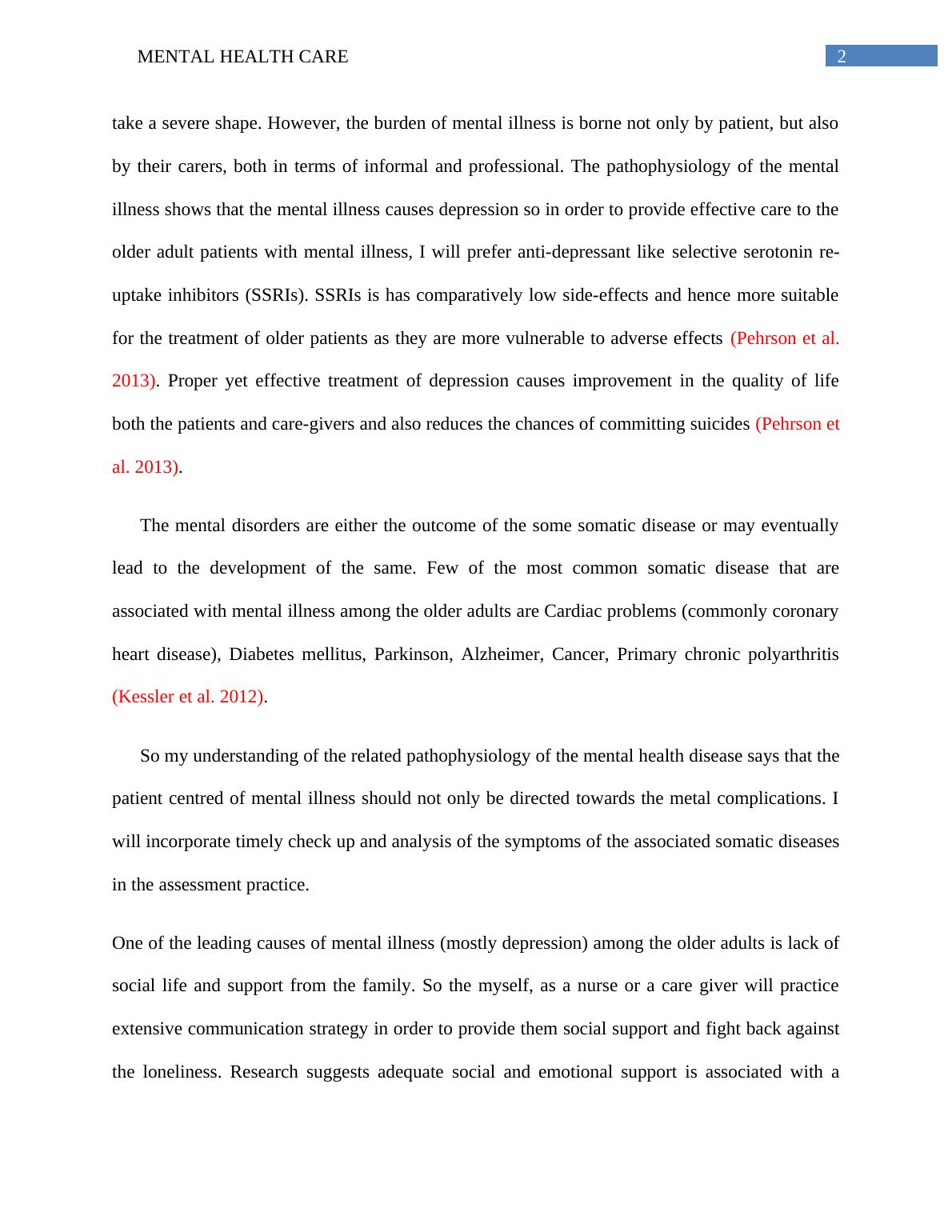Ask a question from expert
NUR 3460 - Mental Health Care Assignment | Mental Disorders
Madonna University
Holistic Mental Health Nursing Care (NUR 3460)
Added on 2020-02-24
About This Document
NUR 3460 - Mental Health Care Assignment | Mental Disorders Assignment, Mental Disorders are common in older adults and include depression, anxiety disorders, dementia, delirium, schizophrenia, and in extreme cases suicide. However, the majority of the mental disorder mentioned above do not necessarily occur as a result of aging. Research suggests that 18 to 37 percent of older adults suffer from depression during the later part of their life. Older people tend to give priority to their physical complications and refuse to acknowledge that they actually feel extremely depressed or sad. They feel that there is a stigma associated with the discussion of mental health conditions.
NUR 3460 - Mental Health Care Assignment | Mental Disorders
Madonna University
Holistic Mental Health Nursing Care (NUR 3460)
Added on 2020-02-24
End of preview
Want to access all the pages? Upload your documents or become a member.


